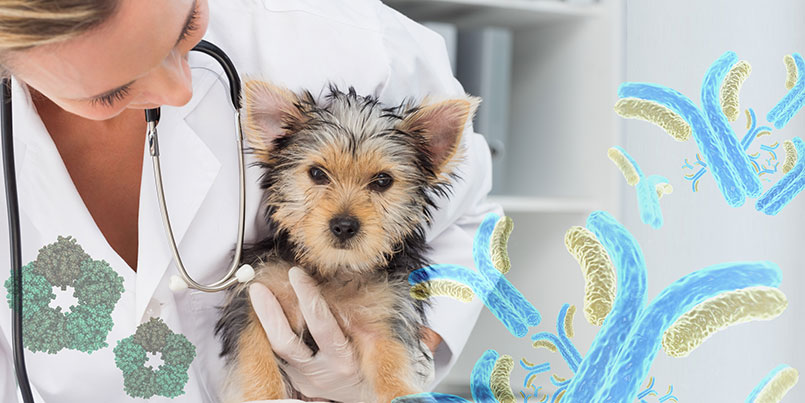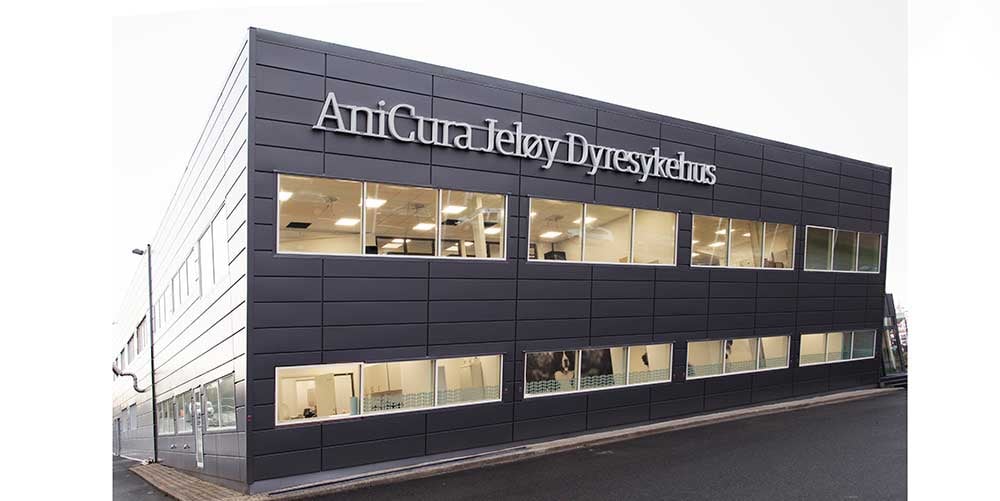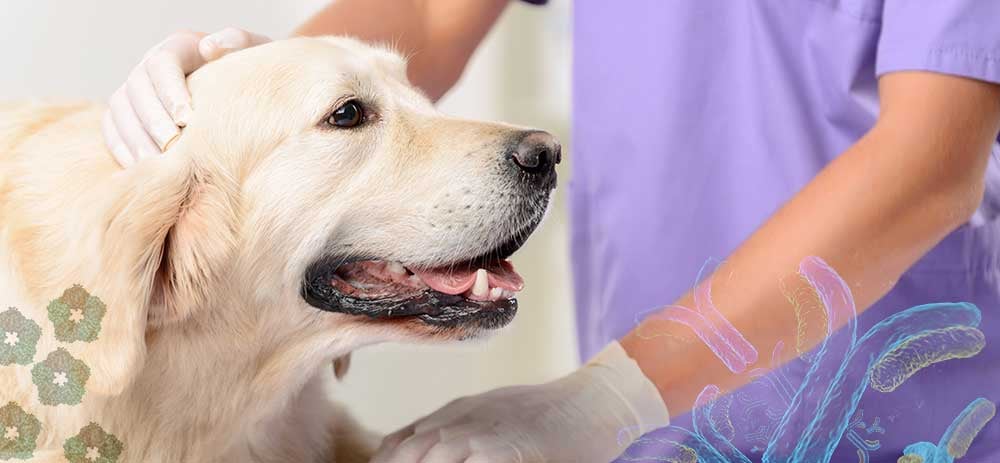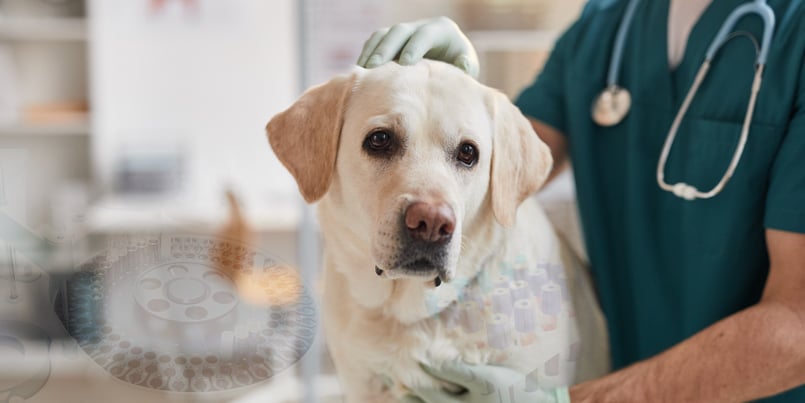
“The high clinical relevance of canine CRP is observed daily, every time we see how the CRP results influence the treatment of a dog, improving its condition. We appreciate the many benefits of CRP in diagnosing, monitoring disease development and in prognostic evaluation.”
Bente Sævik, Veterinarian at AniCura Jeløy Animal Hospital
Canine CRP – Experience and perspectives from AniCura Jeløy Animal Hospital
AniCura Jeløy Animal Hospital is one of the most modern veterinary hospitals in Norway today, treating more than 24000 animals per year, mainly dogs and cats. The hospital also includes a diagnostic laboratory performing a range of tests utilising technology such as PCR, mass spectrometry, immunoassays, clinical chemistry and hematology. As a customer of Gentian for more than five years, AniCura Jeløy Animal Hospital has truly experienced the benefits of analysing CRP in canine serum.
We have visited AniCura Jeløy Animal Hospital and asked about their experience with the Gentian Canine CRP Immunoassay. There we met Bente Sævik, Veterinarian (DVM, PhD, Dipl. ECVCP) and Manager for Internal- and Laboratory Medicine and Kari Elisabeth Syverstad, Biomedical laboratory scientist.

AniCura Jeløy Animal Hospital, their new premises in Moss, Norway.
The veterinarian’s Point of View
Bente demonstrates in-depth knowledge of the latest research and validation studies regarding canine CRP. She describes how CRP as an acute phase marker has experienced growing use in the last years. “Recently we have seen an increase in the positive attitude towards acute phase proteins. This combined with the diverse functionality of CRP, as it is not only a marker for diagnosing inflammation, but also for monitoring disease activity and prognosis, have contributed to CRP being a well-used marker for inflammation in dogs in our clinical laboratory.”
“Before the CRP assay was available the most common diagnostic test for inflammation was the detection of increased sedimentation rates and changes in the leukogram. However, as these levels can be elevated for several days and are influenced by stress, they do not provide the same insight into the current status of inflammation such as CRP.”
Bente also shares details on the use of CRP in their clinic: “Here at AniCura Jeløy Animal Hospital we include canine CRP in the “large dog profile”, where the role of CRP is to detect potential systemic inflammation, and in some cases it might be a marker for occult disease motivating further examinations.”
Bente continues: “Also, in cases of specific conditions such as immune-mediated hemolytic anemia and pancreatitis, we analyse CRP sequentially to examine and monitor the improvement of the dog’s condition. As CRP directly reflects the degree of inflammation it gives us the opportunity to closely follow the dog’s condition to see whether it is improving or not. Lastly, we use the measurement of CRP to increase our recognition of postoperative infections.”

The biomedical laboratory scientist’s Point of View
Elisabeth expresses her positive experience with the Gentian Canine CRP Immunoassay; “It is a very reliable assay of good technical quality.” She further describes an assay that provides stable results with a good correlation to inflammation. The results are reproducible, accurate, with good precision and low CV.
“It is also very useful that the assay is a turbidimetric assay for clinical chemistry instruments which gives us the opportunity to receive results within only a few minutes.” She also appreciates that the results using the Gentian Canine CRP Immunoassay reportedly is not influenced by hemolyzed serum or lipaemic samples, which is relatively often the status of samples obtained from dogs.
Elisabeth explains that they mainly measure CRP in serum samples, but highlight that they find it very beneficial that they can analyse CRP in plasma samples as that sometimes can be requested.
Canine-specific antibodies
Both Bente and Elisabeth value the specificity of the immunoassay due to the utilisation of canine-specific antibodies. They express their familiarity with the avian origin of the antibodies. These are produced by vaccinating hens with canine CRP antigen isolated from canine peripheral blood, and then isolating the canine-specific CRP antibodies from the egg yolks. While the canine-specific CRP antibodies contribute to the specificity of the assay, the avian origin of the antibodies contributes to reduce interference by not reacting with mammalian rheumatoid factors, mammalian IgG antibodies, or bacterial or mammalian Fc receptors.We thank AniCura Jeløy Animal Hospital for a very pleasant visit, and Bente and Elisabeth for sharing their experience and knowledge.

-1.jpg)
.png)